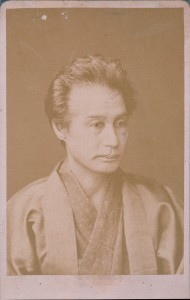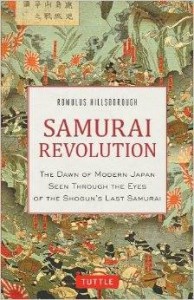

Giri (義理) has been on my mind recently. To me it is one of the most alluring aspects of Japanese society. In Samurai Revolution: The Dawn of Modern Japan Seen Through the Eyes of the Shogun’s Last Samurai, a biography of Katsu Kaishū, I described giri as “integral to bushidō, the code of the samurai, a basic tenet of which was ‘strictness with superiors, and leniency with subordinates.’ Based on loyalty to one’s feudal lord (i.e., obligation for favor received from one’s lord) and integrity founded on shame, giri, to a great extent, accounted for the harmony in samurai society, and it was an inherent element of both the aesthetics and the moral courage of the samurai caste.” Takechi Hanpeita, a focus of my Samurai Assassins, wrote: “to be born a human being and not to have a sense of giri and gratitude is to be less than a beast.” (人と生まれて義理と恩とをしらざれハちくしょふにもおとり申し候)
It is the allure of this philosophy that keeps me writing about this history.


